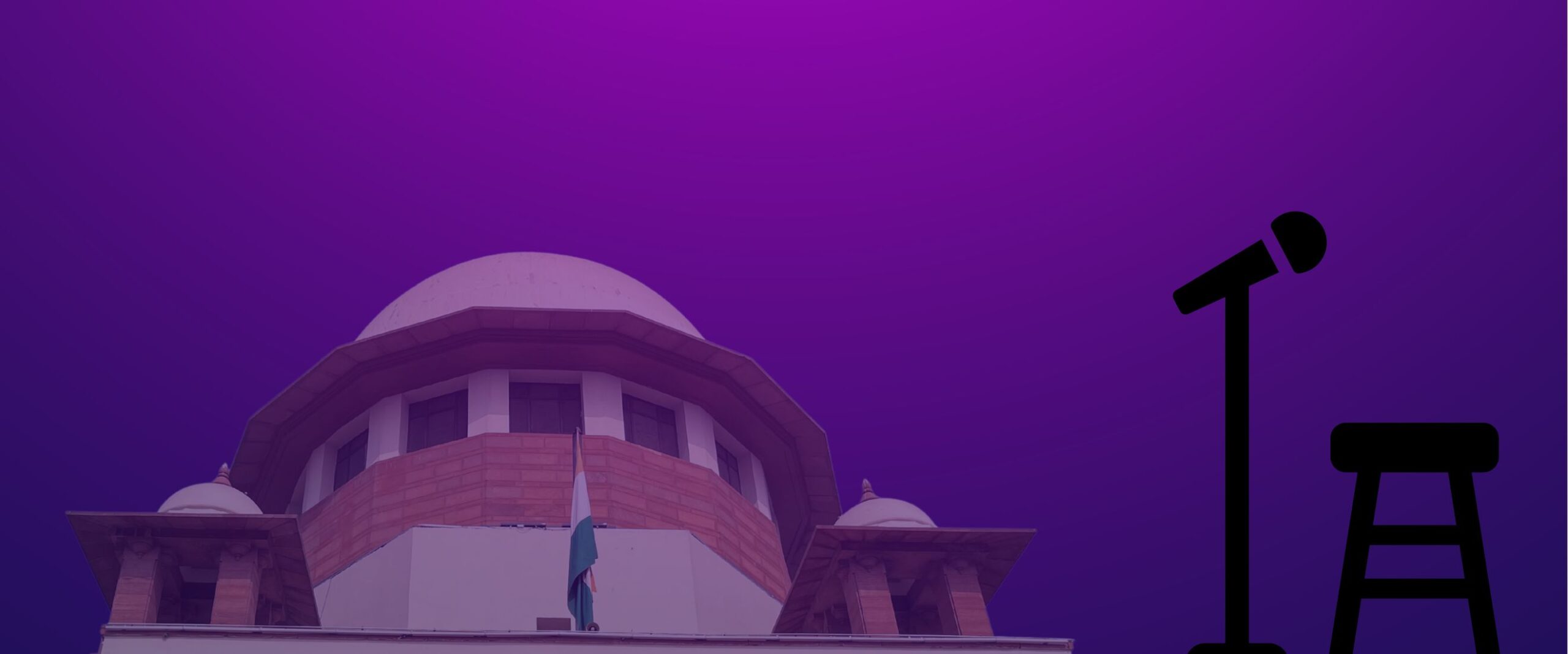Analysis
Samay Raina, Sonali Thakkar and other comedians must publish unconditional apology online, Supreme Court Orders
The Court deliberated on the guidelines for online speech to avoid future instances that could hurt the sentiments of certain groups

Today, a Bench of Justices Surya Kant and Joymalya Bagchi briefly took up Ranveer Allahbadia’s case at the Supreme Court. Since Allahbadia’s case was last heard in July 2025, the scope of the case has expanded, including an intervention application from the Cure SMA Foundation. The foundation flagged allegedly offensive jokes by comedian Samay Raina on the same show, which mocked blind individuals and an infant with Spinal Muscular Atrophy—a rare and severe genetic disorder.
Previously, the Court engaged with the Union government about developing guidelines for online and internet speech. Today, the Court reiterated that such guidelines should not prohibit freedom of speech and expression; they should work to ensure a controversy like the one involving Allahbadia does not occur. The Court clarified that the guidelines should not appear as a mere reaction to the India’s Got Latent show. Instead, they should account for new developments in modern technology.
Senior Advocate Aparajita Singh, appearing for the Cure SMA Foundation, submitted that the guidelines must maintain the dignity of specially-abled persons.
Bench: Guidelines should consider future challenges
Justice Bagchi described the speech used by influencers and other creators online as “commercial speech,” asserting that this form of expression carries a responsibility to ensure it does not “hurt the sentiments of certain sections.” Justice Kant cautioned that the mockery of specially-abled persons could set a precedent for similar comments against other vulnerable groups, such as children and senior citizens. “And ethnic groups” Justice Bagchi added.
Singh argued that while the Programme Code under the Cinematograph Act, 1952, prohibits content that criticises, maligns, or slanders a person or group, the medium of content dissemination has since changed since the 50s. The Information Technology Act does not sufficiently address the challenges of today. Justice Bagchi responded that the Intermediary Guidelines of 2021 attempt to address this, but the words used in it are “generic”. Singh further stressed that while the current legal framework addresses the issues of access for disabled persons, content guidelines must also protect their dignity.
When Singh pressed that the Court could lay down broad guidelines, Justice Kant stated that any guidelines issued by the Court would have no scope for judicial review. Attorney General R. Venkataramani submitted that guidelines are already available—the Union is in the process of coordinating all the relevant statutes and provisions with the concerned ministries. He requested the Court to suggest improvements. The Attorney General added that the guidelines would not be an absolute gag order and the freedom of expression would be maintained.
A Counsel appearing for the News Broadcasters and Digital Association, one of the respondents, stated that there are existing guidelines and mechanisms which news channels follow since 2008. These would be useful for the drafting of the new guidelines.
The Bench directed that the guidelines can be drafted after an appropriate consultation with all the stakeholders.
Bench: Influencers to publish their apology online
The Court was apprised that all the accused comedians had tendered their apologies in an affidavit and were present in the court. While Senior Advocate Aparajita Singh stated that “better sense had prevailed” upon the comics, Justice Surya Kant insisted that there should be penal consequences, wondering whether they should pay a penalty.
Singh, however, suggested that the case was an opportunity for the influencers to spread awareness about disability, noting that “what they say matters.” She proposed that any penalty should benefit the disabled community.
The Bench directed the influencers to upload their unconditional apologies on their podcasts, YouTube channels, and other media. The issue of an appropriate penalty would be considered at a later stage.